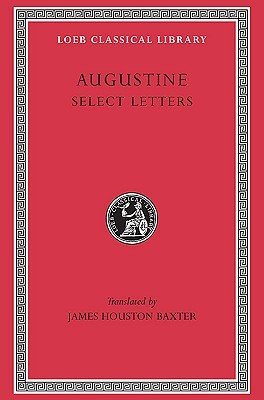- Bible
- Read the Bible
- Bible Versions
- Verse of the Day
- Reading Plans
- Verses by Topic
- Books of the Bible
- Bible Images
- Study
- Commentaries
- Concordances
- Dictionaries
- Encyclopedias
- Sermons
- Bible Atlas & Maps
- BP Wiki
- Devotionals
- Today's Devotionals
- Light of the World
- All Devotionals
- Inspirational Quotes
- More
- Picture Quotes
- Videos
- Inspirational
- Bible Study
- What The Bible Says
- Bible Q&As
- Daily Bread
- Bible by Genre
- Bible Stories
- Random Bible Verse
- Community
- Store
Select Letters
by Augustine
Augustinus (354-430), son of a pagan, Patricius of Tagaste & his Xian wife Monica, while studying in Africa to become a rhetorician, plunged into psycho-philosophical doubts in search of truth, joining for a time the Manichaeans. He became a grammar teacher at Tagaste & lived much under the influence of Monica & his friend Alypius. About 383 he went to Rome & soon after to Milan as a teacher of rhetoric, being now attracted by the Sceptics & Neo-Platonists. His studies of Paul's letters with Alypius & the preaching of Bishop Ambrose led in 386 to his rejection of sensuality & to his famous conversion from mixed beliefs to Xianity. He returned to Tagaste & there founded a religious community. In 395/6 he became Hippo's bishop & was henceforth engrossed with duties, writing & controversy. He died there during the successful Vandal siege.
From Augustine's large output the Loeb Classical Library offers the autobiographical ConfessionsConfessions (2 vols); On the City of GodOn the City of God (7 vols), which unfolds God's action in world history, & propounds the superiority of Xian beliefs over pagan in adversity; & a selection of LettersLetters which are important for the study of ecclesiastical history & his relations with other theologians.
From Augustine's large output the Loeb Classical Library offers the autobiographical ConfessionsConfessions (2 vols); On the City of GodOn the City of God (7 vols), which unfolds God's action in world history, & propounds the superiority of Xian beliefs over pagan in adversity; & a selection of LettersLetters which are important for the study of ecclesiastical history & his relations with other theologians.
BUY NOW
Hardcover, 592 pages
Published January 1st 1930 by Harvard University Press (first published 398)
Book Quotes
© 2026 Bibleportal.com All rights reserved.

Aurelius Augustinus - more commonly "St. Augustine of Hippo," or simply "Augustine" - was a philosopher and theologian, and one of the most important figures in the development of Western Christianity. He framed the concepts of original sin and just war. Augustine was one of the most prolific Latin authors in terms of surviving works, and the list of his works consists of more than a hundred separate titles.
Augustine took the view that the Biblical text should not be interpreted literally if it contradicts what we know from science and our God-given reason. Many Protestants, especially Calvinists, consider him to be one of the theological fathers of Reformation teaching on salvation and divine grace.
... Show more